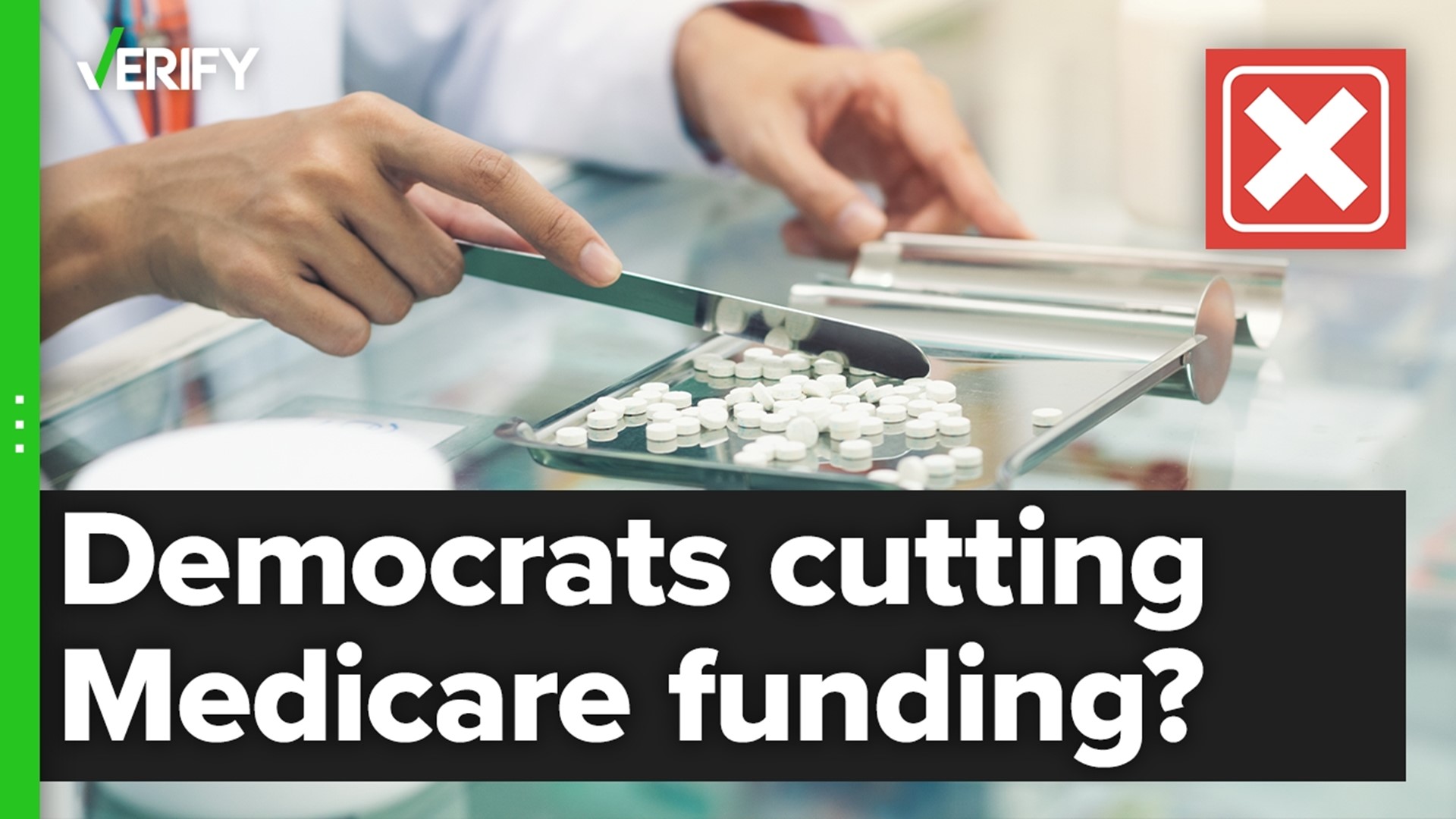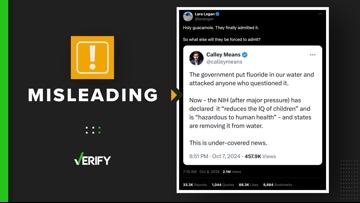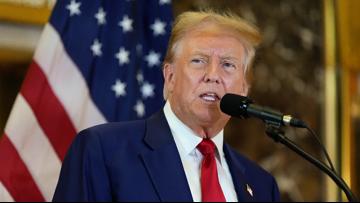President Joe Biden signed the Inflation Reduction Act into law on Aug. 16, 2022. It made sweeping changes to healthcare and climate policy, and became one of the most significant pieces of legislation passed during his tenure.
The law passed with zero Republican votes, and attracted significant conservative criticism that has continued into 2023.
One line of criticism that’s been frequently repeated is a claim that the law dramatically slashes Medicare. A VERIFY viewer asked if it was true that Democrats cut $280 billion from the program as part of the IRA, as Senator Rick Scott (R-Fla.) recently claimed.
THE QUESTION
Did Democrats cut $280 billion from Medicare?
THE SOURCES
THE ANSWER
No, Democrats did not cut $280 billion from Medicare.
WHAT WE FOUND
Scott resurrected claims that were popular in political advertisements during the midterm elections, that Democrats cut nearly $300 billion in Medicare spending as part of the Inflation Reduction Act (IRA).
That number comes from an analysis of the IRA conducted by the Congressional Budget Office, which estimated that certain provisions in the law would save the program upwards of $280 billion over the next decade.
But that money is cost savings, not cuts to Medicare benefits. The law allows Medicare to provide the same services at less cost to taxpayers.
For instance, Medicare can now negotiate with drug companies to get cheaper prices on medications for its patients. Before the IRA, Medicare wasn’t legally allowed to do that.
Healthcare and budget policy groups agreed the claims about Medicare cuts were baseless.
“It’s been fact-checked repeatedly and shown to be a lie,” Bill Sweeney, AARP senior vice president for government affairs, said in August. “In fact, this bill saves Medicare nearly $300 billion by lowering the price of drugs. Only drug companies would say that saving people money is a bad thing.”
The Committee for a Responsible Federal Budget called such claims “misleading attacks” when they aired in ads during the midterms, saying: “In reality, the bill's prescription drug savings would save the federal government nearly $300 billion through 2031 without cutting benefits – and while actually reducing premiums and out-of-pocket costs by nearly $300 billion more.”












